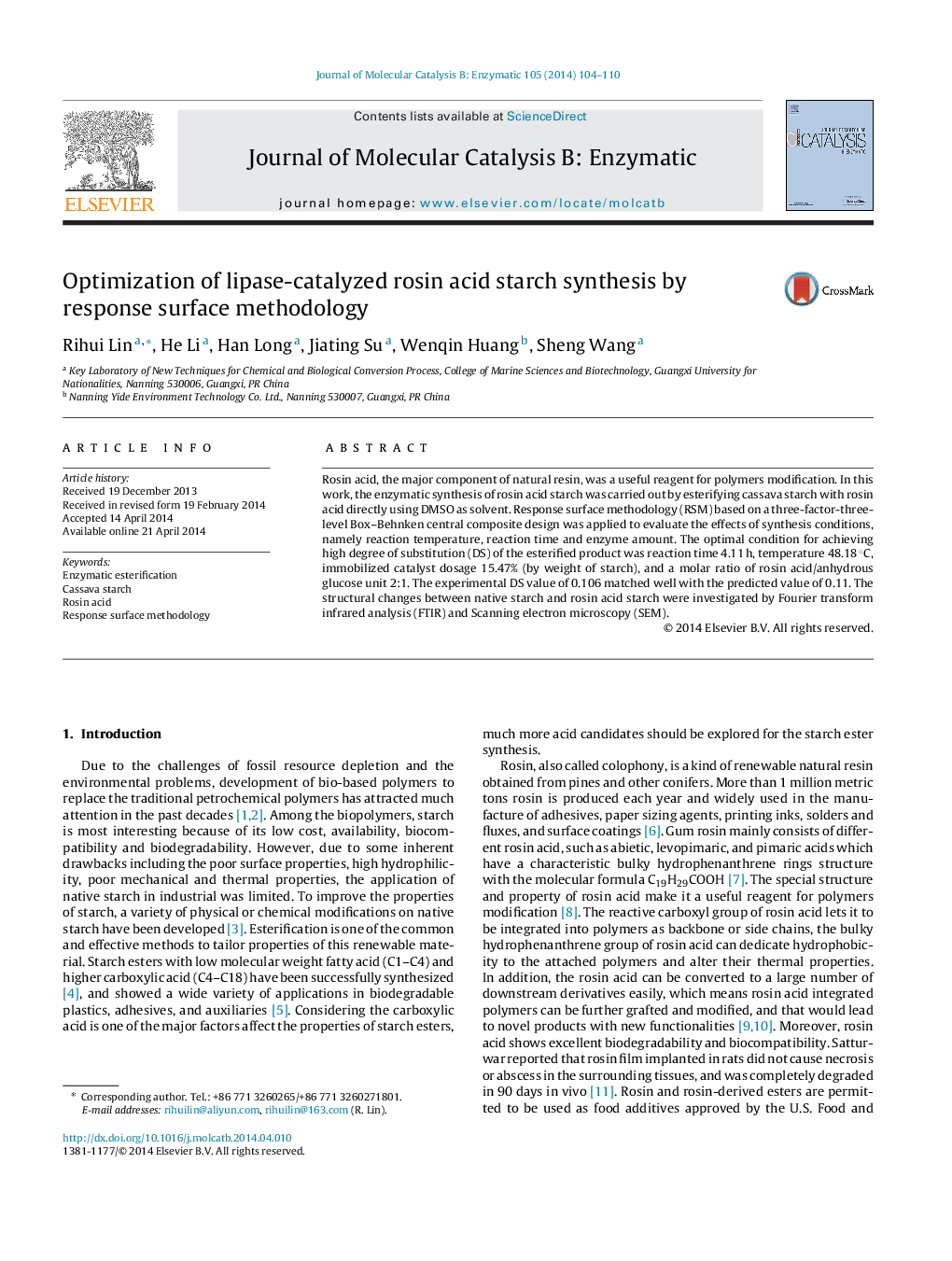| Article ID | Journal | Published Year | Pages | File Type |
|---|---|---|---|---|
| 69837 | Journal of Molecular Catalysis B: Enzymatic | 2014 | 7 Pages |
•Rosin acid is a important natural product and finds new application in polymeric materials.•Enzymatic synthesis of rosin acid starch was carried out under mild conditions.•Response surface methodology was applied to evaluate the effects of reaction conditions.•The structural changes between native starch and rosin acid starch were investigated by FTIR and SEM.
Rosin acid, the major component of natural resin, was a useful reagent for polymers modification. In this work, the enzymatic synthesis of rosin acid starch was carried out by esterifying cassava starch with rosin acid directly using DMSO as solvent. Response surface methodology (RSM) based on a three-factor-three-level Box–Behnken central composite design was applied to evaluate the effects of synthesis conditions, namely reaction temperature, reaction time and enzyme amount. The optimal condition for achieving high degree of substitution (DS) of the esterified product was reaction time 4.11 h, temperature 48.18 °C, immobilized catalyst dosage 15.47% (by weight of starch), and a molar ratio of rosin acid/anhydrous glucose unit 2:1. The experimental DS value of 0.106 matched well with the predicted value of 0.11. The structural changes between native starch and rosin acid starch were investigated by Fourier transform infrared analysis (FTIR) and Scanning electron microscopy (SEM).
Graphical abstractFigure optionsDownload full-size imageDownload as PowerPoint slide
